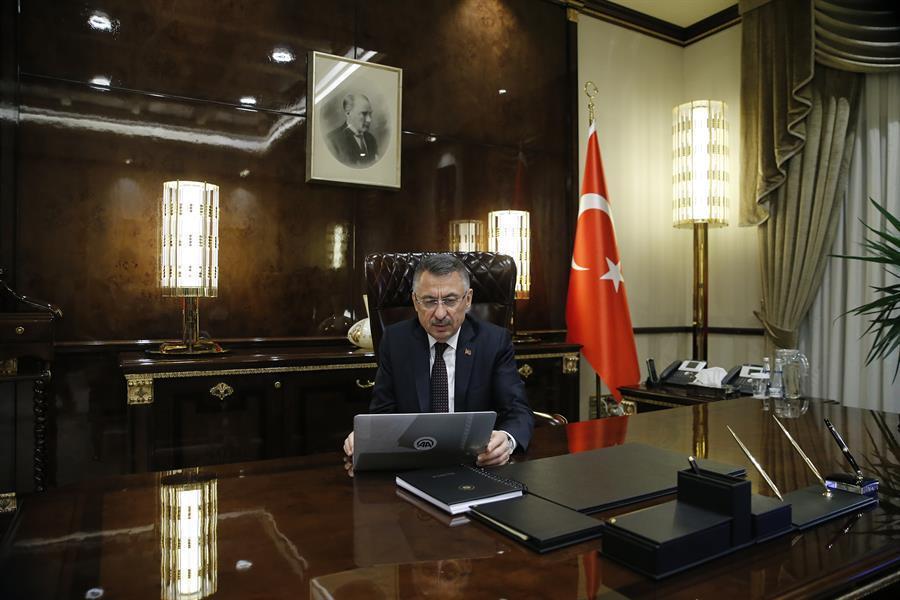
The natural gas pipelines stretching from the reserves in Azerbaijan and Russia to the European markets have turned Turkey into a major energy corridor from East to West, a senior Turkish official has said, days before the inauguration of the TurkStream project with the attendance of the Turkish and Russian presidents.
“We have made a huge leap forward toward becoming a major energy corridor,” Vice President Fuat Oktay told state-run Anadolu Agency in an interview on Jan. 1.
Oktay cited the Trans-Anatolian Natural Gas Pipeline (TANAP) and Trans Adriatic Pipeline carrying the natural gas from the Shah Deniz gas field in Azerbaijan to Europe and the TurkStream project from Russia to the European markets via Turkey as two major and key projects for the energy security of the European continent.
“This does not just make an energy corridor but a peace corridor,” he said. Oktay recalled that President Recep Tayyip Erdoğan and Russian President Vladimir Putin will attend the inauguration of the TurkStream project to be held near Istanbul on Jan. 8. Putin will be Turkey’s first highest ranking foreign guest of 2020 along with other representatives from regional countries.
Turkey has long been working to become an energy hub in the region as it links the source countries with the consumers. The TurkStream is believed to contribute to Turkey’s efforts to become an energy hub as the pipeline will supply 31.5 billion cubic meters of natural gas per year to the Turkish and European markets.
Libya motion in parliament
Oktay also replied to questions on other foreign policy issues, including Libya and eastern Mediterranean.
Recalling that parliament will vote on Jan. 2 on a governmental motion for the deployment of Turkish troops to Libya in defense of the Tripoli-based Government National Accord, Oktay expressed his hopes that it will be voted by a good majority of lawmakers including the opposition parties.
“We hope that the opposition could see the fact that this motion has been put forward for Turkey’s national interests,” he said.
Turkey and the GNA had signed two memoranda of understandings, one on the delimitation of the maritime jurisdiction zones in the Mediterranean and the other on defense and security cooperation. The government decided to seek a parliamentary consent to send troops to Libya after the GNA demanded military support from Turkey against accelerated attacks by General Khalifa Haftar.
Oktay said Haftar forces have further intensified their attacks against Tripoli after Turkey and the GNA signed the agreements, indicating that was why the government decided to speed up the parliamentary process.
“[Passing] the motion [from parliament] will also have a strong political message. If they stop their attacks or if they say they will withdraw [their forces], then we may see this as appropriate. But if they continue their attacks, then the motion gives us a one-year mandate. We may deploy our troops whenever we deem necessary,” he stressed.
[HH] No step back from S-400s despite US sanctions
Another issue that will have repercussions in 2020 will be related with Turkey’s deployment of the S-400 air defense systems from Russia despite sanctions threats from the United States.
“We have always told one thing to our interlocutors: Never threaten us,” Oktay stressed, recalling a series of sanctions threats imposed by the U.S. Senate which included the exclusion of Turkey from the F-35 aircraft project.
“What’s the F-35s got to do with the S-400s? Its technology cannot be stolen when it flies over Israel but can be stolen when it flies over Turkey?” Oktay said, in reference to the U.S. concerns that the deployment of the S-400s together with the F-35s would jeopardize the stealth capabilities of the latter.
Oktay said Turkey will not step back from the S-400s.